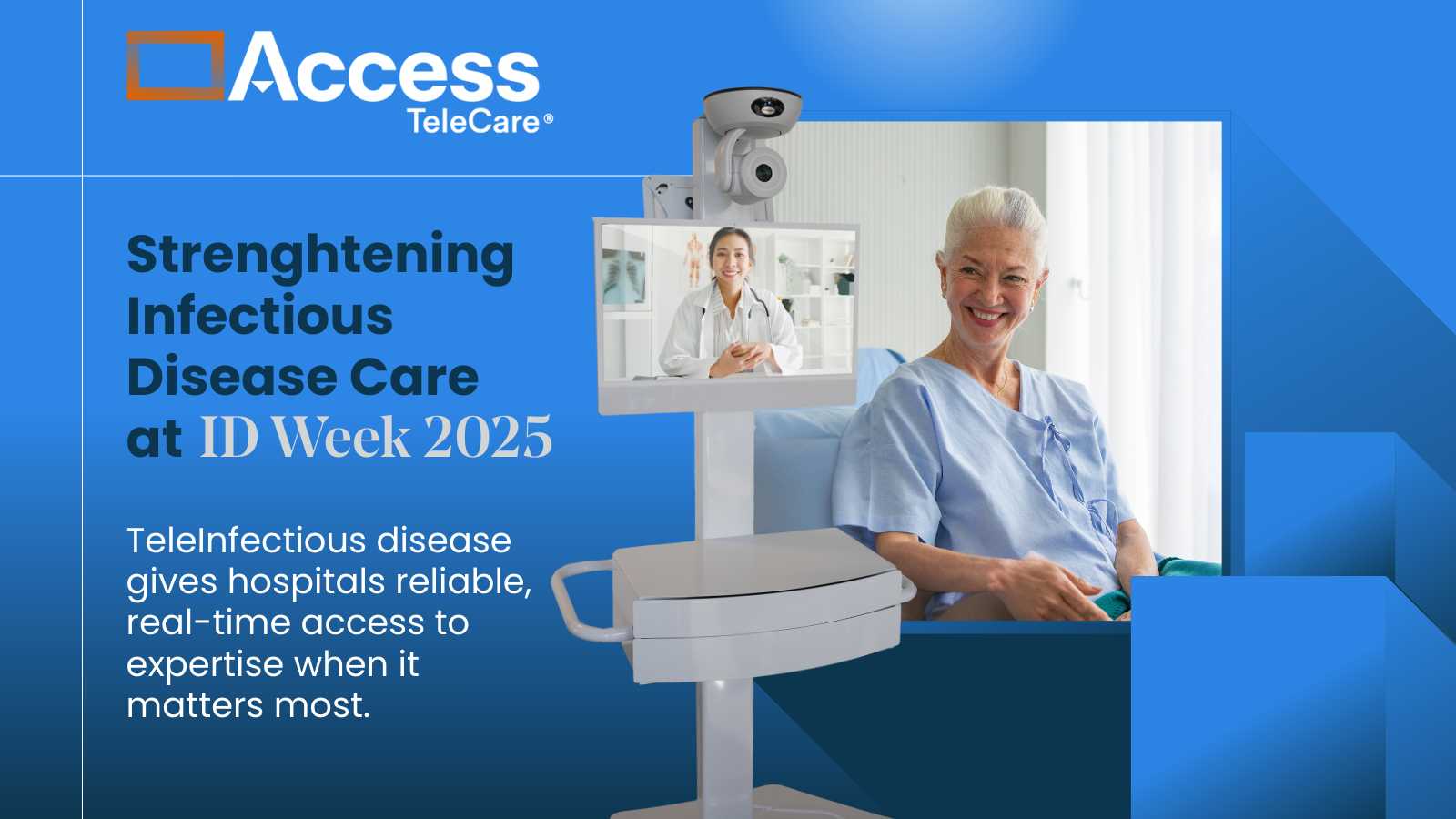For hospitals seeking long-term solutions to meet their community’s specialty care needs, adding just one Access TeleCare telemedicine program can be the catalyst for rapid and organic expansion into specialty services that would otherwise be unfeasible without virtual care.
Once one Access TeleCare telemedicine program is launched, hospitals find the integration of additional service lines as the natural next step towards becoming a leader in local specialty care and meeting the community’s care needs. Access TeleCare’s integrated telemedicine platform is centered around a seamless combination of easy-to-use technology and collaborative, dedicated pods of physicians operating as full members of the on-site care teams. This enables hospitals of any size to quickly implement virtual care anywhere in the facility without disrupting existing operations or patient care.
Clinician and Patient Satisfaction Drive Telemedicine Expansion
When a small-town health system in Arkansas launched a telePulmonary and Critical Care program, Access TeleCare’s dedicated pod of physicians fostered trust and strong personal relationships with patients, quickly dispelling the hospital staff’s fear that the community would resist the addition of virtual care.
“We’re an older community primarily consisting of retirees, and my first impression of telemedicine was that the community would not be receptive to it,” noted Piggott Health System’s executive director, James Magee. “I’ve been totally wrong on that. I’ve not had a single patient or family tell me they have been disappointed in telemedicine.”
The programs were also well received by on-site physicians who gained timely access to collaborative and supportive specialty medicine peers overnight. The health system’s chief medical officer, Dr. J.T. DeWitt, described the convenience of walking down the hall to the Access TeleCare cart to speak with a specialist: “Access TeleCare’s physicians know our team and I’ve gotten to know them. I just step in front of the camera to speak to them and it feels like you’re standing in the room with the physician.”
With patients and on-site staff on board and outbound transfers rapidly decreasing, expanding telemedicine services was the obvious next step for the hospital. It wasn’t long after the first program launched that Piggott added a teleCardiology program, and earlier this year it launched a teleInfectious Disease program as well. The health system plans to add its fourth telemedicine program with Access TeleCare in the coming months.
Expanding Telemedicine Services: From ICU to Neurology and Beyond
One rural hospital in East Texas wasted no time expanding its telemedicine services with Access TeleCare after the success of its teleICU program – the first 100 percent virtual ICU program in the state.
The program launched in 2013 alongside a telePulmonary and Critical Care program and delivered significant results, including reduced outbound transfers, an increased case mix index, and a sustainable workload for the hospital’s over-stretched physicians who were experiencing high levels of burnout. This led the hospital to add nighttime teleHospitalist coverage in 2017 to ensure that the hospital maintained capacity to admit patients 24/7, a decision that yielded a 60 percent increase in revenue.
“We provide 24/7 coverage with critical care physicians. In the past, we would transfer those types of patients to bigger hospitals for critical care,” said the hospital’s CEO. “With telemedicine, since we have an intensive care unit, we’re able to take care of those patients here, with a 24/7 presence by the physicians in the room.”
With patients getting the care they needed close to home and on-site physicians benefitting from the additional capacity, the hospital continued investing in its telemedicine offerings, adding teleNeurology in 2018 and behavioral health the following year. By 2022, the hospital was operating eight telemedicine service lines from Access TeleCare, each fully integrated into their operations, workflows, and native EMR.
“Were it not for our ability to use telemedicine, we would not be able to take care of near the number of patients here, and that would greatly increase the number of patients that we would have to transfer out,” said the hospital’s chief medical officer.
Maximizing Telemedicine Impact: Benefits for Hospitals and Patients
By combining intuitive, easy-to-use technology, collaborative specialty medicine experts, and 24/7 technical support, Access TeleCare makes it possible for hospitals of any size, anywhere in the country to deploy and expand virtual specialty care programs with confidence.
Contact us to learn more about our telemedicine programs, or to explore expanding your existing partnership with us.









